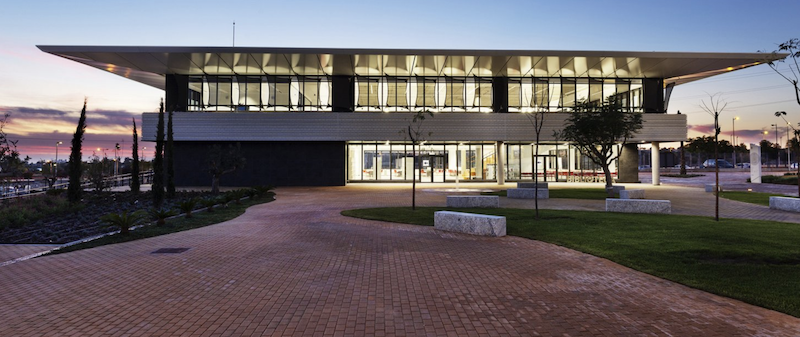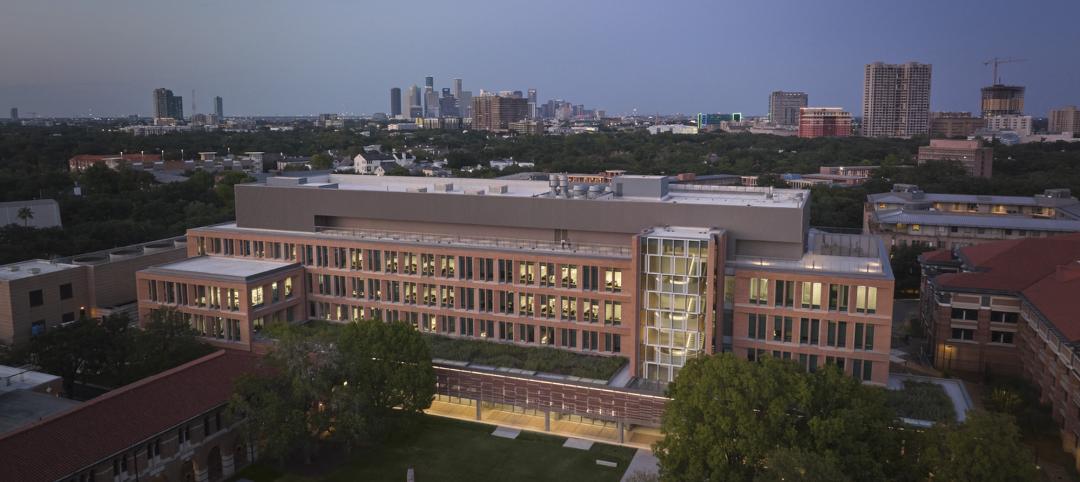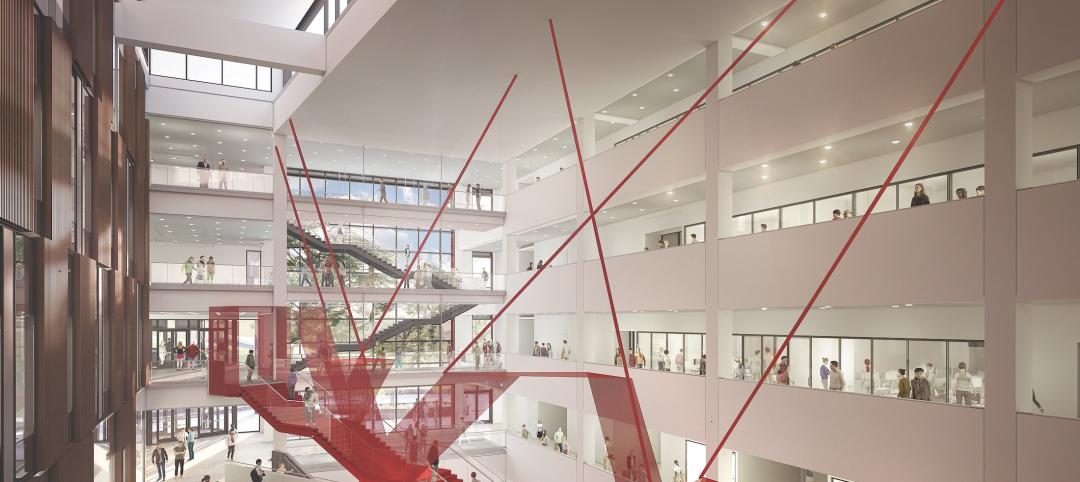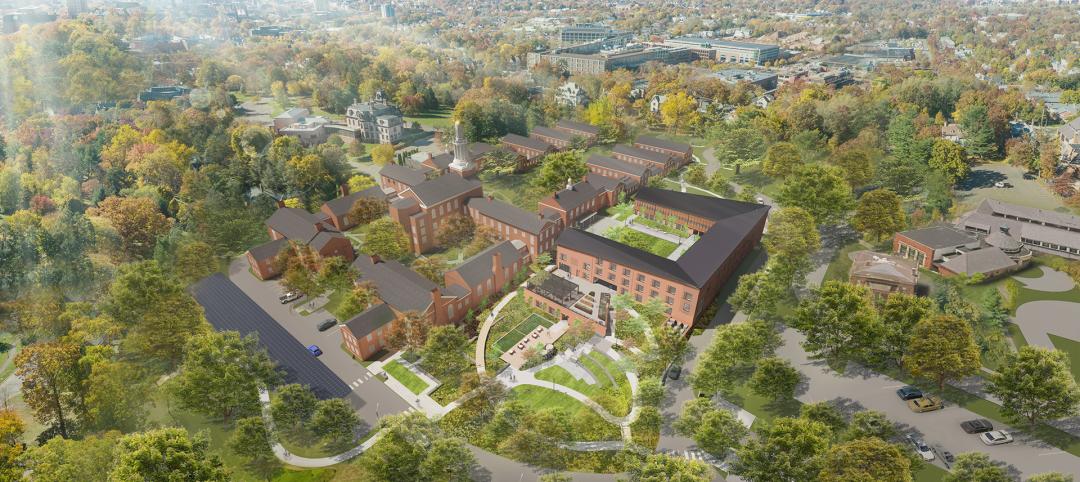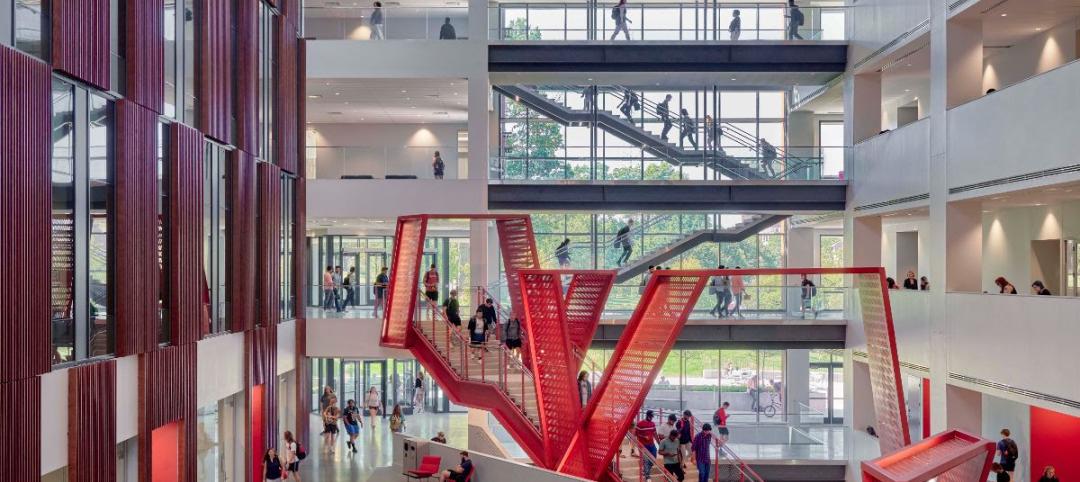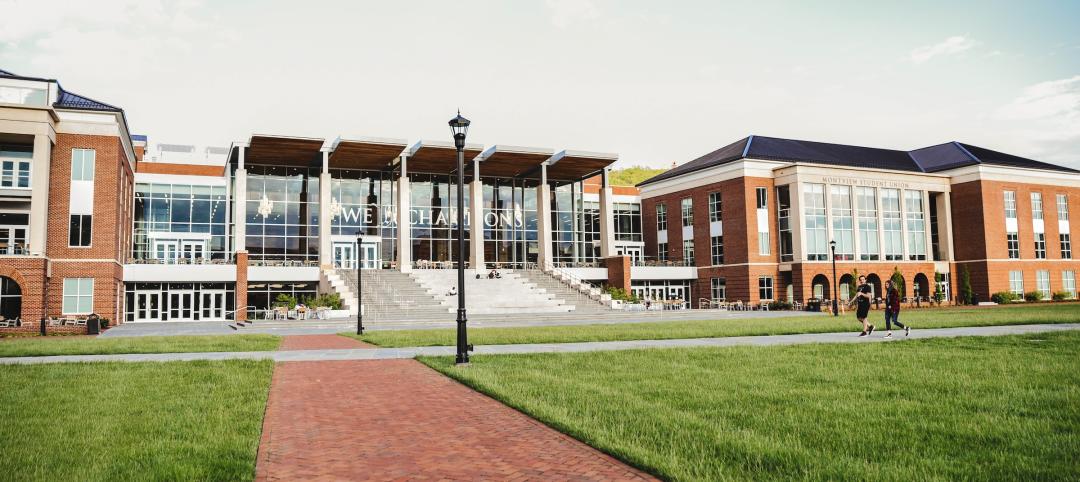The newly designed 312,000-sf Loyola University Campus in Seville, Spain has become the world’s first integrated campus to receive LEED Platinum, the highest environmental rating by the U.S. Green Building Council. The multipurpose facility, which also aims to be the first ‘5G Campus’ in the world, was designed to accommodate numerous aspects of learning and university life.
The $29 million project places all of the classrooms, laboratories, and common spaces (including the cafeteria and auditorium), which totals 265,000-sf, in a single, optimized building. The sports building, library, lockers, access building, and chapel, which totals over 47,000-sf of additional space, complete the complex.
Given Seville’s Mediterranean climate, where high temperatures are often the norm, special attention was paid to controlling sunlight. “The project makes use of the lessons learned in T2 at Heathrow Airport in the U.K., and incorporates textile technology – the design of an external element, ‘the candle,’ which controls the light that penetrates the buildings,” said Luis Vidal, President and Founding Partner at luis vidal + architects, in a release. “The campus also consists of a sequence of open and closed spaces, designed to provide self-shading.”
See also: Students aren’t the only ones who have returned to Austin College in Texas
Winter/summer plazas change with the seasons to provide comfortable outdoor space for students. During summer these plazas benefit from the sun shading of the buildings, generating spaces sheltered from the Western sunlight. In addition, the presence of water cools down the temperature and creates a microclimate of a certain comfort. During winter plazas heat up with sunlight, in its lowest angles of incidence and, they are protected from the prevailing winds.
The campus’ roof, facades, and windows were designed to minimize sizable energy losses. Photovoltaic panels were also installed to reduce the net-energy consumption of the building. A water recovery system was also incorporated. More than 20% of the building materials come from previous uses, and more than 30% of the materials were locally extracted from the surrounding area.
Project construction was wrapped in 17 months.
Related Stories
University Buildings | Jan 18, 2024
Houston’s Rice University opens the largest research facility on its core campus
Designed by Skidmore, Owings & Merrill (SOM), the 251,400-sf building provides students and researchers with state-of-the-art laboratories, classrooms, offices, and a cafe, in addition to multiple gathering spaces.
Sponsored | BD+C University Course | Jan 17, 2024
Waterproofing deep foundations for new construction
This continuing education course, by Walter P Moore's Amos Chan, P.E., BECxP, CxA+BE, covers design considerations for below-grade waterproofing for new construction, the types of below-grade systems available, and specific concerns associated with waterproofing deep foundations.
University Buildings | Jan 15, 2024
The death of single-use university buildings
As institutions aim to improve the lives of their students and the spaces they inhabit, flexible university buildings may provide an all-in-one solution.
University Buildings | Dec 8, 2023
Yale University breaks ground on nation's largest Living Building student housing complex
A groundbreaking on Oct. 11 kicked off a project aiming to construct the largest Living Building Challenge-certified residence on a university campus. The Living Village, a 45,000 sf home for Yale University Divinity School graduate students, “will make an ecological statement about the need to build in harmony with the natural world while training students to become ‘apostles of the environment’,” according to Bruner/Cott, which is leading the design team that includes Höweler + Yoon Architecture and Andropogon Associates.
University Buildings | Dec 5, 2023
The University of Cincinnati builds its largest classroom building to serve its largest college
The University of Cincinnati’s recently completed Clifton Court Hall unifies the school’s social science programs into a multidisciplinary research and education facility. The 185,400-sf structure is the university’s largest classroom building, serving its largest college, the College of Arts and Sciences.
Products and Materials | Nov 30, 2023
Top building products for November 2023
BD+C Editors break down 15 of the top building products this month, from horizontal sliding windows to discreet indoor air infusers.
Higher Education | Nov 21, 2023
UPitt at Bradford opens new Engineering & Information Technologies Building
The University of Pittsburgh at Bradford recently opened a new engineering and information technology building that adds urgently needed lab and instructional space to the campus.
Esports Arenas | Oct 10, 2023
Modular esports arena attracts more than gamers
As the esports market continues to grow to unprecedented numbers, more facilities are being developed by universities and real estate firms each year.
Higher Education | Oct 10, 2023
Tracking the carbon footprint of higher education campuses in the era of online learning
With more effective use of their facilities, streamlining of administration, and thoughtful adoption of high-quality online learning, colleges and universities can raise enrollment by at least 30%, reducing their carbon footprint per student by 11% and lowering their cost per student by 15% with the same level of instruction and better student support.
Giants 400 | Sep 28, 2023
Top 80 University Building Engineering Firms for 2023
AECOM, Jacobs, BR+A, and Salas O'Brien head BD+C's ranking of the nation's largest university sector engineering and engineering/architecture (EA) firms for 2023, as reported in Building Design+Construction's 2023 Giants 400 Report. Note: This ranking includes revenue for all university/college-related buildings except student residence halls, sports/recreation facilities, laboratories, S+T-related buildings, parking facilities, and performing arts centers (revenue for those buildings are reported in their respective Giants 400 ranking).


